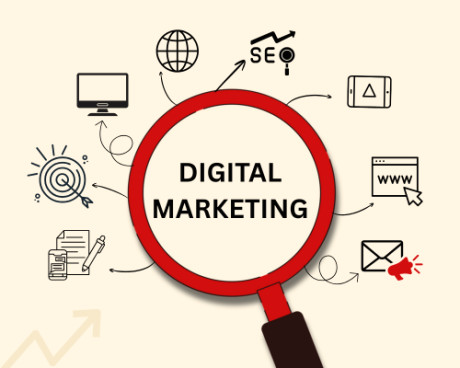

Branding and Reputation Management in the Digital Age For Tech Entrepreneurs
Little over five years
ago, a prominent US brand had to come into a settlement with the Federal Trade
Commission after news broke out that its management had asked its workforce to
add fake online reviews on its products. The settlement did irreparable damage
to the brand’s online reputation and branding efforts and presented a go-to
case study on what not to do in branding and reputation management.
For technology
entrepreneurs, this presents an opportunity to understand branding and
reputation management in the digital age. In today’s AI-driven world, the
impact of online media on brand identity is irrefutable. A proactive stance to
productively manage social media can lead to a favourable and renewed
perception while reeling in customers. However, similar to how a proactive
social media stance offers numerous benefits to a business, haphazard online
media management can also lead to misinformation and crisis scenarios.
In today’s digital world, it is only a matter of time for customers to find out
about corporate misdeeds and whether it's proven or alleged matters little.
The statistics
Statistics related to
this theory agree with the notion. According to an Ipsos MORI study, an
astounding 97% of individuals believe that online reputation management remains a
critical factor behind the success of a business. The research also revealed
that 98% of respondents believe online reviews play a critical role in any
business. For technology-oriented businesses that offer SaaS, Artificial
Intelligence (AI), Data Analytics, Cloud Services, Digital Marketing, and
FinTech — both aspects have become increasingly crucial in the modern age.
According to Google,
brands are vulnerable to losing as much as 22% of their total business if a
single negative news article ranks on the first page of a search result. The
tech giant also revealed in 2014 that 3 negative articles in search results can
lead to brands losing 59.2% of their total portfolio.
These statistics offer
a minimalistic way for us to understand how the Internet has become a critical
part of branding and online reputation management efforts.
It’s not just the omnipresent nature of technology, but also the constantly
changing consumer behaviour. This is backed by the fact that studies have found
that an astounding 84% of millennials do not like or trust conventional
advertising methods. This directly translates to the fact that the younger
generation trusts recommendations more than earlier generations and consumes
them primarily from the internet or their social circles. Entrepreneurs,
especially in the technology domain, must understand the ambiguity of
constantly changing consumer preferences and act accordingly.
Constructing a robust brand identity
The digital world is
full of narratives and counter-narratives, which makes it challenging for
consumers to rely on any particular brand. For technology service providers,
high competition also directly translates to confusion between the efficiency
and cost-effectiveness of similar services by different brands. For example, individuals
or businesses seeking ERP systems are faced with the dilemma of choosing
between numerous similar solutions, which often reduce the business potential
of these companies. This can be addressed by constructing a robust brand
identity and aligning the brand subtly with its products. Xerox, the American
corporation, can be a great example of this, which is often synonymous with
photocopies of documents.
Constructing a robust
brand identity that aligns with user perception can lead to distinguishing tech
entrepreneurs from the rest of their peers. To do it, brands need to formulate
a unique slogan that connects meaningfully with its target consumers, along
with a business name, logo and colours. A narrative must also be formulated
surrounding the brand, based on which consistent storytelling across channels
can lead to a holistic brand identity and promote digital recognition.
While formulating the
action plan, brands must consider their values, mission, vision and USP as part
of the effort. To develop a productive branding campaign, the target audience
and their preferences must be kept at the centre of the plan, not vice versa. A
few years ago, Apple formulated one of its most prominent slogans of all time -
“Think Different”. The slogan focused on celebrating innovators and critical
thinkers, from famous scientist Albert Einstein to music legend John Lennon.
The slogan aligned perfectly with Apple’s product line consisting of innovative
telecom products and its global customer base felt a close connection with the
brand.
Furthermore, channels
to disseminate the messaging should also be contemplated. Gone are the days
when only website articles and television took the lion’s share of driving
narratives. Social media,
email marketing and influencer marketing
have taken centre stage to drive strategic messaging to engage and influence
customers, shedding light on the importance of choosing proper channels to
drive brand narratives and generate trust.
Considerations and Future Trends
Arguably the most important
part of formulating a brand management strategy is crisis management.
In today’s AI-driven world, narratives are born and used simultaneously by
numerous different sources. Interactions in the digital domain happen quickly,
and brands often become unable to track them simultaneously to avoid a crisis.
This highlights the importance of setting up a robust crisis communication plan
to counter unforeseen circumstances.
For example, the 2019
global AWS outage incident led to the data loss of millions of customers.
However, Amazon promptly deployed its crisis communication protocol that
dictated appropriate official communication on its social media channels,
conventional media and elsewhere that streamlined the outcome. This offers a
case study to today’s tech entrepreneurs on how to deal with unforeseen crises
with a robust strategy.
Gen Z and Gen Alpha
individuals are becoming target audiences for many tech brands. This is why
reliability, authenticity, and responsibility are becoming critical to tech
entrepreneurs going ahead. Branded content, short-form audio-visual content,
augmented reality (AR), virtual reality (VR) and Artificial Intelligence (AI)
will soon capture and dominate the key trends in the future. This will also
lead branding and reputation management strategies to adapt to the transformed
customer behaviour in an ultra-digital world.
Most Popular Blogs
Newsletter
Categories
About the author
Anubhav Singh: Founder & Managing Director, Bridgers
Anubhav Singh is the Founder and Managing Director of Bridgers, with over 15 years of experience in media relations and strategic corporate communications. He has worked with leading Indian brands across sectors and holds a degree in Mass Communication & Video Production along with an MBA in Marketing. Under his leadership, Bridgers has grown into one of India’s leading PR agencies, known for transparency, innovation, and quality.
Related Articles









